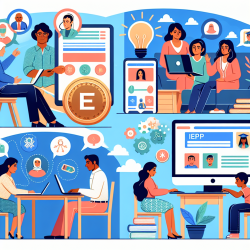The Role of Epidemiology in Shaping Childhood Immunization Policies
In the realm of public health, childhood immunization stands as one of the ten greatest achievements, largely due to its profound impact on controlling and eliminating vaccine-preventable diseases (VPDs). A recent study, "The role of epidemiology in informing United States childhood immunization policy and practice," underscores the pivotal role epidemiology plays in developing evidence-based immunization policies and practices.
Understanding the Impact of Epidemiology
Epidemiology provides the scientific foundation for effective immunization policies by utilizing methods such as disease surveillance, risk factor identification, and community intervention studies. These methods have significantly contributed to the reduction or elimination of many VPDs in the United States. For instance, epidemiological data have informed the development of new vaccines and monitored their effectiveness at the population level, ensuring that vaccines reach those in need and achieve the desired public health outcomes.
Implementing Research Outcomes in Practice
Practitioners can enhance their skills by integrating the outcomes of epidemiological research into their practice. Here are some actionable steps:
- Stay Informed: Keep abreast of the latest epidemiological studies and data regarding vaccine safety and effectiveness. This knowledge is crucial for addressing vaccine hesitancy and improving vaccination coverage.
- Engage in Continuous Education: Participate in workshops and seminars that focus on the role of epidemiology in public health policy. This will enhance your understanding of how data-driven decisions are made in the field of immunization.
- Collaborate with Experts: Work closely with epidemiologists and public health officials to develop strategies that address current and emerging challenges in immunization practices.
- Advocate for Policy Changes: Use epidemiological evidence to advocate for policy changes that promote higher vaccination coverage and address vaccine hesitancy.
Encouraging Further Research
The study highlights ongoing challenges such as vaccine safety concerns, the rise of religious and philosophical exemptions, and vaccine hesitancy. Practitioners are encouraged to engage in further research to anticipate and address these challenges. By contributing to the body of knowledge, practitioners can play a vital role in enhancing the public health impact of immunization programs.
Conclusion
As practitioners, leveraging the insights from epidemiological research can lead to improved immunization practices and policies. By staying informed, engaging in continuous education, collaborating with experts, and advocating for policy changes, practitioners can contribute to the ongoing success of childhood immunization programs. To read the original research paper, please follow this link: The role of epidemiology in informing United States childhood immunization policy and practice.










